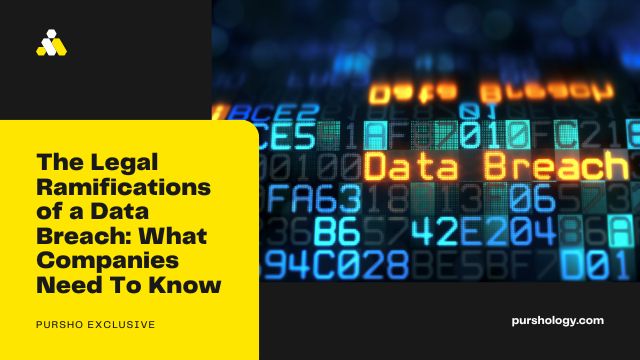As the world becomes increasingly digitized, data breaches are becoming more and more common. While the consequences of a data breach can be serious, many companies are unaware of the legal ramifications of such an event. In this article, we will explore the legal implications of a breach and what companies need to know to protect themselves. Keep reading to learn more.
What should be done in the event of a data breach?

When a data breach occurs, it is important to take action quickly to protect the company and its customers. The first step is to determine the extent of the breach and investigate how it happened. Once the cause of the breach has been identified, steps can be taken to prevent future breaches. In addition, customers whose information has been compromised must be notified. Those who are victims to data security threats should seek out the best data breach law firm California has to offer. Cole & Van Note Attorneys at Law has been in operation since 1992 and they offer legal services concerning data breaches, false advertising, defective products, and employment law disputes. When it comes to breaches, unauthorized access to sensitive information can cause financial setbacks. That’s why victims should seek legal representation from a data breach attorney promptly.
What are some of the risks associated with breaches?
If someone’s personal information is compromised, they may be at risk for identity theft. Thieves could use this information to open bank accounts or credit cards in the victim’s name, or even to take out loans in their name. Another risk that businesses need to be aware of is the potential for lawsuits. If customers’ personal information is compromised in a data breach, they may sue the company for negligence. They may argue that the company should have done more to protect their information and that as a result, they suffered financial losses. Finally, companies need to be aware of the possibility of cyberattacks after a breach. Hackers may attempt to access the company’s systems in order to steal more information or sabotage their operations.
Can businesses get insurance against data breaches?

Data breaches can have a significant negative impact on businesses, both when it comes to finances and reputation. As such, many businesses seek insurance coverage against breaches. However, it can be difficult to find an insurer that will provide coverage for this type of risk. One reason for this is that breaches are often difficult to predict or prevent. An insurer may be reluctant to offer coverage if it believes that the business could have done more to protect its data. Another issue is that insurers may not believe that they can adequately assess the risk of a breach. This is because the damage caused by a breach can vary significantly from one incident to another. Insurers are also concerned about the potential for large payouts in the event of a data breach. This could lead to higher premiums or even cancellations of policies by insurers.
How much does it cost to recover from a breach?
The Ponemon Institute, which conducts research on data privacy and information security, estimates that the average cost of a breach is $3.86 million. This includes the costs of investigating and containing the breach, notifying customers, providing credit monitoring services, and repairing damage to the company’s reputation. Data breaches can also lead to expensive legal penalties. In the United States, the Federal Trade Commission (FTC) has the power to file lawsuits against companies that have suffered breaches if they failed to take reasonable precautions to protect their customers’ information. The FTC has filed several such cases in recent years, including one against Wyndham Hotels & Resorts that resulted in a $10 million settlement. In addition to government regulators, companies that suffer breaches can also face litigation from consumers who have had their personal information compromised. Class action lawsuits are common in these cases and can result in large settlements or verdicts for plaintiffs. For example, after a 2013 breach at Target Corporation affected millions of customers, the company agreed to pay out $39 million in damages to settle a class action lawsuit brought by consumers.
Overall, the legal ramifications of a breach are vast and can have a significant impact on a company’s bottom line. From civil penalties to class action cases, companies need to be aware of the potential consequences of a breach and have a plan in place to deal with them.







